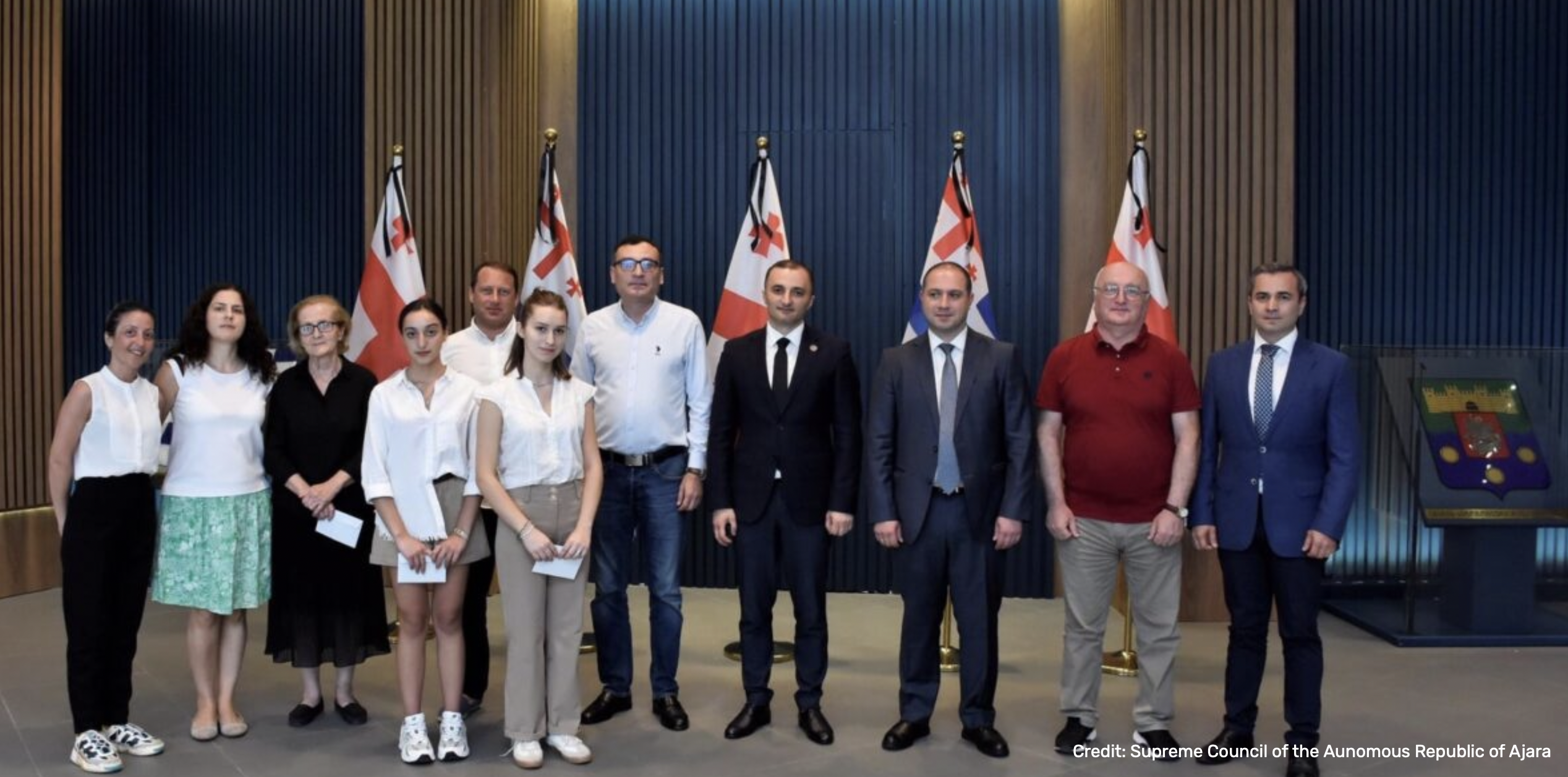Open Parliaments: The Case of the Autonomous Republic of Ajara
In this blog series on open parliaments, we highlight the experiences of several open parliaments around the world. Open parliaments are institutions that foster transparency, participation, and accountability throughout the legislative process.
The Autonomous Republic of Ajara is a political-administrative region of Georgia. Its Supreme Council is made up of 21 congresspeople who represent about 350,000 citizens.
While the Autonomous Republic of Ajara is not a member of OGP Local, its legislative body, the Supreme Council, has played a significant role in promoting open government values.
Georgia was one of the first countries to join the Open Government Partnership (OGP) in 2011 and since then has developed four OGP action plans. This commitment inspired the Supreme Council of the Autonomous Republic of Ajara to also get involved in OGP.
In 2020, the Supreme Council created a permanent body – the Open Governance Council – as an institutional mechanism to promote the openness and transparency of the regional legislative body. Notably, the Open Governance Council invited local non-government organizations to cooperate in its Consultative Group. The Council and the Consultative Group adopted the 2020-2021 Open Governance Action Plan with 15 commitments focusing on four main goals: strengthening citizen engagement, improving access to information, developing technology and innovation, and increasing the accountability of the institution. Most of these commitments resulted from initiatives from civil society organizations including Transparency International Georgia, the Civil Society Institute, the Intellect Young Scientists Union.
From the very beginning, the Supreme Council acknowledged the importance of introducing open government principles in the formation of a democratic state. Reformers in the Supreme Council rallied behind open governance and started a journey of institutional reform to establish a more effective public agency. The Supreme Council established a structural unit responsible for openness – the Department of International Relations and Strategic Development – which coordinates the implementation of open government commitments and initiatives.
Although a small part of the implementation of the commitments had to be delayed, mainly because of scarce financial resources, the majority of commitments have been successfully implemented. To increase access to information and citizen participation, the Supreme Council created a Citizen Engagement Center, a space that provides information about the events and functions of the Supreme Council and which is planned to be equipped with an elevator and a ramp this year. Thanks to fruitful cooperation with civil society organizations, it also created an electronic and written petition system. The open governance reform of the Supreme Council made it possible to introduce technological innovations and internal systemic changes. For example, an electronic system for visiting the building of the Supreme Council of Ajara; a system of media accreditation; internet live streaming of the sessions of the Supreme Council of Ajara; and online publication of public documents in a machine-readable format.
These initiatives were implemented with the support of the European Union and the United Nations Development Program and in cooperation with the Institute for Development of Freedom of Information.
Now the Open Governance Council of the Supreme Council and the Consultative Group have finalized the 2022-24 action plan, which takes into account the public needs as much as possible and is focused on even greater openness, accessibility, and institutional development.
In the process of introducing institutional openness reform, the Supreme Council implemented specific initiatives beyond the action plan. For example, it increased its efforts for achieving gender equality through cooperation with donor organizations. It also developed institutional and communication strategies and action plans for the years 2021-2024, becoming a model for other regional public agencies on planning and institutional efficiency.
Original publication: https://www.opengovpartnership.org/stories/open-parliaments-the-case-of-the-autonomous-republic-of-ajara/





